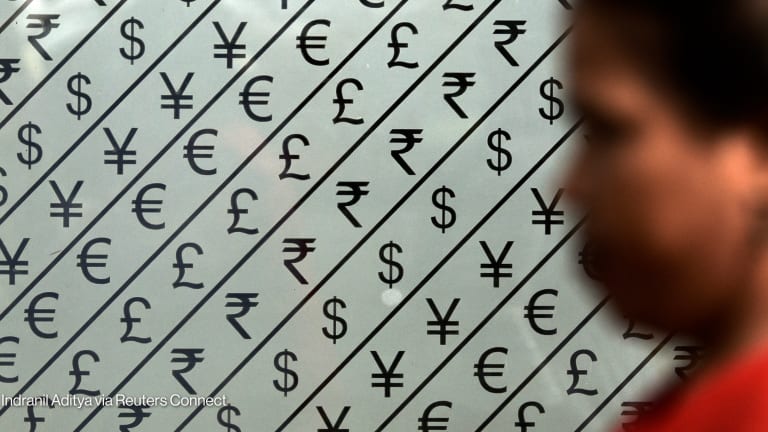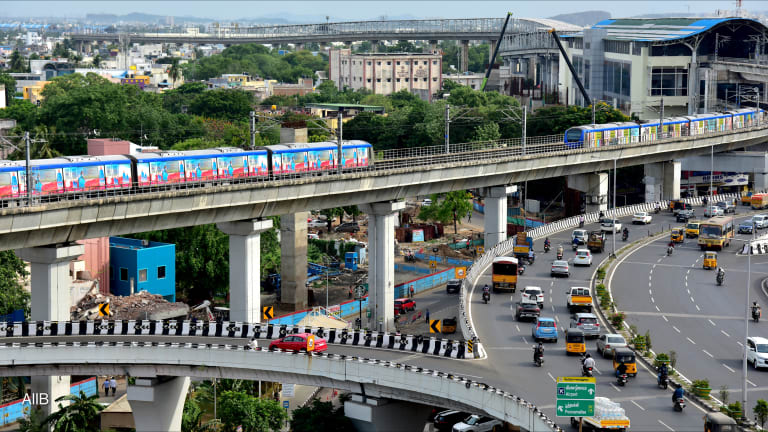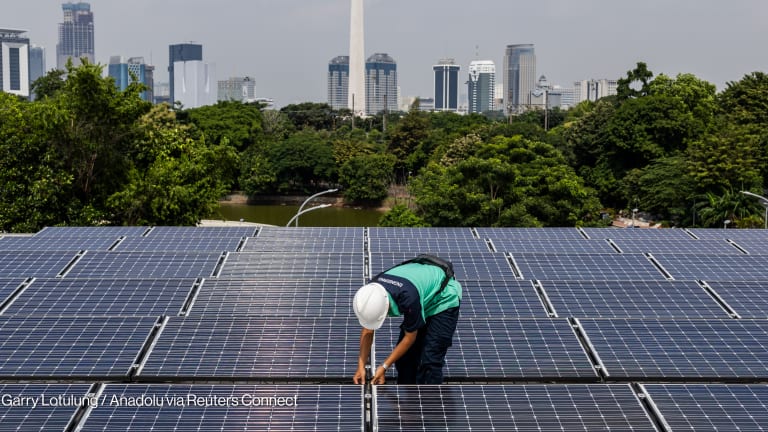These MDB investments got our attention in 2021
The MDBs had become arguably more important than ever during the pandemic — but some of their choices raised eyebrows in the past year.
The world looked to multilateral development banks this year for a way out of the COVID-19 pandemic, more and better support for African economies, climate action, and more. With that in mind, we cast around for the most eyebrow-raising MDB investments of the past 12 months. It wasn’t all coal, cattle, and Coca-Cola. There was also support for a floating solar photovoltaic farm in Albania, a $100 million gender-inclusive private equity fund in Africa, and a record haul for the IDA fund for the lowest-income nations. Still, lenders faced plenty of questions in 2021 about some of their choices. 1. A test for Biden The Inter-American Development Bank is lending to Suriname for an extension to the Kuldipsingh Port Facility, an investment whose financing amount is $14.5 million and which has raised eyebrows over environmental concerns. The KPV “operates a cargo terminal and is mainly focused on export of logs, providing logistic services to support the oil & gas industry (offshore) and import of construction materials,” according to IDB Invest, the bank’s private sector wing. Notably, the United States abstained from the vote, citing fossil fuel concerns. Friends of the Earth, the environmental campaigners, described the loan as the first real test of the Biden administration’s new “Guidance on Fossil Fuel Energy at the Multilateral Development Banks.” The campaigners are particularly concerned, as they argue the port “facilitates the development of major new oil fields.” The year has seen increasing tug-of-war between the global push for greener economies, and low-income countries worried that they will suffer economically in this new frenzy to move away from fossil fuels. 2. Where’s the sustainable beef? Also in Latin America, IDB Invest is facing pushback over its program to support a Brazilian meat plant. Over the summer, 200 NGOs united against IDB Invest’s $43 million loan, which is intended to leverage a larger $157 million loan package, for Marfrig Global Foods. While the bank’s plan is to develop a pro-environment supply chain, the NGOs say the company — the second largest of its kind in the world — has a history of involvement in illegal deforestation, as well as child labor issues. 3. Displaced by drainage The World Bank is entering into a dispute resolution process over a major urban project — with a total expected cost of some $183 million — in Kampala, Uganda, that faced strong pushback from the local community. It remains to be seen whether the sides can reach an agreement or if the case will be kicked back to an independent complaints panel for more investigation. The case centers around forced evictions, including armed guards showing up in December 2020 to place large, red “X” signs on people’s homes, a signal that they would be pushed out. Local activists have fought back and formally lodged a complaint with the World Bank Inspection Panel in June. The lengthy dispute resolution process highlights how much work goes into using the recognized mechanisms at the World Bank for holding the anti-poverty lender to account. Residents may have months or years ahead of them in the fight for compensation and resettlement. Of note, the drainage project at the heart of the matter is the second phase of an infrastructure program that started in 2014 and which was also plagued with similar concerns about the project running through people’s land and cutting them off from services. This all raises questions about why lessons were not learned regarding involving communities in all stages of such a project. 4. Will they always have Paris? How and when development banks will align with the Paris Climate Agreement remained a hot topic this year — and not just for the World Bank. For the European Bank for Reconstruction and Development, climate concerns contributed to the demise of a potential $250 million loan to Egypt to clean up a state-owned oil refinery. After years of preparatory work from the bank, Egypt finally withdrew the loan request amid concern from civil society and some EBRD shareholders about supporting any fossil fuel infrastructure in the days following the COP 26 climate talks in Glasgow. The European Investment Bank, for its part, released its PATH framework, designed to decarbonize its borrowers’ business activities. But the Luxembourg-based lender did not escape scrutiny either, with a €624 million loan to Polish energy company TAURON, designed to help it “modernise the power distribution grid and make it compatible with renewable energy sources, which will accelerate the pace of decarbonisation,” according to EIB. That didn’t go far enough for Counter Balance, a group of NGOs focused on EIB and EBRD, which wants to see EIB require that the companies it supports have plans to phase out coal by 2030. Both episodes illustrate the challenges ahead for development banks on climate. A lending policy is one thing, but with growing scrutiny on any money going to fossil fuel infrastructure, MDBs will likely think twice before putting similar projects in their pipeline in future. Keep an eye on this issue ahead of February’s summit between national leaders from the European Union and African Union. The former want to talk about a green and digital recovery from the pandemic, while members of the latter often reiterate the need for more infrastructure investments, and argue that not all of the continent’s needs can be met with renewable energy.
The world looked to multilateral development banks this year for a way out of the COVID-19 pandemic, more and better support for African economies, climate action, and more.
With that in mind, we cast around for the most eyebrow-raising MDB investments of the past 12 months.
It wasn’t all coal, cattle, and Coca-Cola. There was also support for a floating solar photovoltaic farm in Albania, a $100 million gender-inclusive private equity fund in Africa, and a record haul for the IDA fund for the lowest-income nations.
This story is forDevex Promembers
Unlock this story now with a 15-day free trial of Devex Pro.
With a Devex Pro subscription you'll get access to deeper analysis and exclusive insights from our reporters and analysts.
Start my free trialRequest a group subscription Printing articles to share with others is a breach of our terms and conditions and copyright policy. Please use the sharing options on the left side of the article. Devex Pro members may share up to 10 articles per month using the Pro share tool ( ).
Vince Chadwick is a contributing reporter at Devex. A law graduate from Melbourne, Australia, he was social affairs reporter for The Age newspaper, before covering breaking news, the arts, and public policy across Europe, including as a reporter and editor at POLITICO Europe. He was long-listed for International Journalist of the Year at the 2023 One World Media Awards.
Shabtai Gold is a Senior Reporter based in Washington. He covers multilateral development banks, with a focus on the World Bank, along with trends in development finance. Prior to Devex, he worked for the German Press Agency, dpa, for more than a decade, with stints in Africa, Europe, and the Middle East, before relocating to Washington to cover politics and business.









